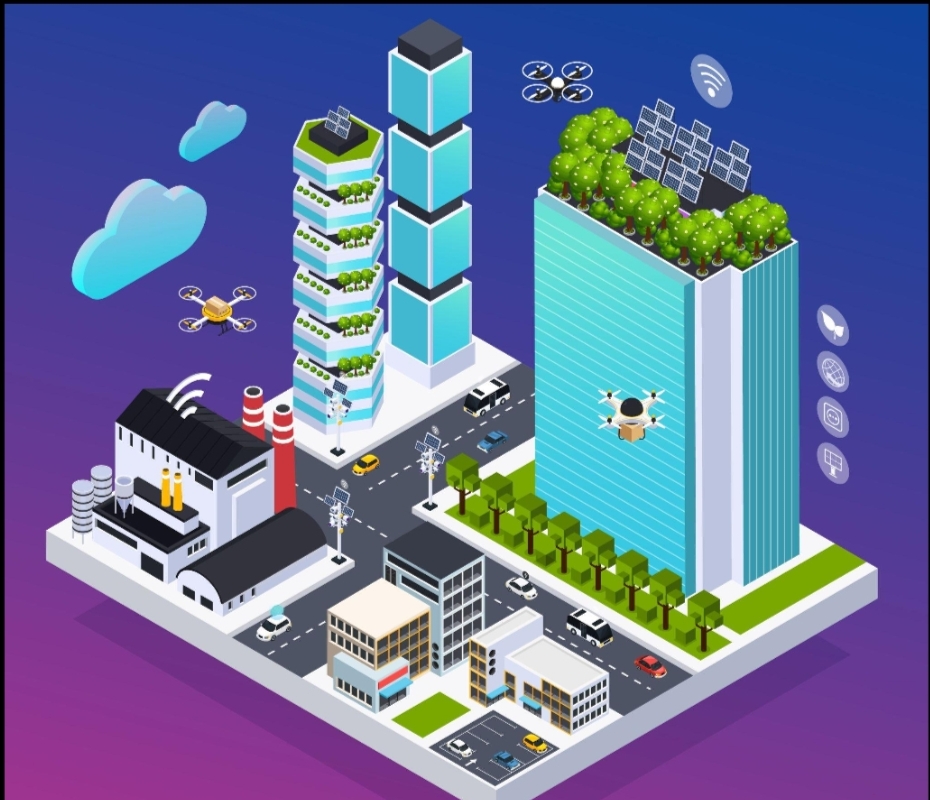5 Emerging Technologies Every Real Estate Professional Should Know

Technology is advancing rapidly, and almost every industry is adapting to it. Similar to other industries, technology has significantly influenced real estate. Since technology has added innovative technologies in real estate, it has modified how this business works and its success.
Technology continues to change the way real estate professionals conduct business and contact their clients. Proptech, or real estate technology, is changing how we buy, sell, and manage properties in different ways. Over the next few years, PropTech will reshape the whole real estate business.
What Is Real Estate Technology?
Real estate technology is an extensive term that includes many different types of emerging technologies. These may include property management software, smart home devices and a variety of tools enabled by the IoT or Internet of Things. All these technologies have something in common, and that is that they are designed to make things easier and more effective. These may include sourcing deals, managing properties, processing transactions, and delivering customer services widely.
Emerging Real Estate Technologies You Must Know
Since the industry is adapting to modern technologies, it is a must for every real estate professional to know and understand them. Here are some of the most emerging technologies in the real estate industry.
- Artificial Intelligence or AI
We all know that Artificial Intelligence is everywhere now. From data analysis to chatbots, this new technology is a strong source that can make your property more connected and more intelligent. Most of the data gathered every day through internet searches, connected devices, and social media is important.
AI can instantly process anything and everything to identify any unique trends, like forecasting. In real estate, it means potentially anticipating trends that influence the housing process due to population growth and many other data points. AI can be used in conducting historical data analysis and optimizing pricing strategies. Moreover, real estate professionals can also use AI to automate consumer service tasks, determine global real estate and market trends, and identify consumer needs. Through this, they can enhance the overall purchasing experience.
- Internet of Things (IoT)
“From self-driving cars to smart homes, the IoT is changing our lives every day. The Internet of Things refers to any device that exchanges data with other devices using the Internet. No matter where you are, you can see anything and everything using these devices. The IoT not only makes your life more convenient, but also secure. You can easily monitor any safety and security measures with just a tap on the screen.” Daniel Cabrera, Owner and Founder of Fire Damage House Buyer
Mostly and almost all of these devices are cloud-based and can connect with other smart devices and appliances in your area. It makes your lives so much easier. Smart homes are already adapting to the IoT for an easier life.
- Drones
Drones are a real estate technology that provides new ways of inspecting and marketing real estate. They can offer more accurate and faster inspections. Moreover, agents can also use them for enhanced marketing capability and valuable insights into the real estate market. That is why drones have become widely adopted in the industry.
Real estate agents can use drones to take photos and videos of the product or location for marketing purposes. It can also assist in inspecting properties where it may be challenging to reach, like gutters or roofs. Agents also use them to map out the layout and architecture of a home and a neighborhood to better monitor and track changes. They are also an emerging technology for aerial photography and virtual property tours using high-resolution devices and other approaches to make the real estate agent’s life easier.
- Big Data in Decision-Making
Big data modifies real estate by giving insights into buyer preferences, investment risks, and market trends. Big data analyzes data from various sources and enables real estate professionals to make evidence-based decisions. These sources may include government databases, social media, and market reports. For example, big data can reveal trends in customer behavior, helping developers plan future projects based on emerging demographics and preferences.
Moreover, real estate brokers and agents use big data to help buyers assess the lasting value of properties. It does so by examining neighborhood trends, infrastructure developments, and economic forecasts. Big data analytics empower industry stakeholders to find opportunities and risks in earlier possible ways. It ultimately leads to smarter development and investment decisions.
- Data Security
Securing data is always crucial, especially when it comes to the real estate business. The real estate industry is not an exception because businesses hold a lot of valuable data about people that can be hacked into and utilized. Data security is a trend that has been among the most important ones in real estate development going forward. Most software companies and startups provide solutions for monitoring and preventing attacks, encrypting data, and securing network traffic.
Many new tools also enable security to manage risks and access systems remotely. It helps to manage and back up all data. This allows you to offer a safer work environment on real-world development sites.
How Technology Is Benefitting the Real Estate Industry
Technology has emerged and significantly influenced the real estate industry over the past few years. These technologies are modifying and contain further growth, leading to a better and smarter real estate future. Here are some of the most common benefits of the technology in the real estate industry.
Faster and Smarter Property Search
“Technology has completely changed how buyers and renters search for properties. With only a few taps on the smartphone or clicks on the computer, users can access thousands of listings. They can filter by number of bedrooms, price range, location, and property type. Real estate websites and apps provide interactive maps, photo galleries, and detailed descriptions.” Daniel Cabrera, Owner and Founder of Sell My House Fast SA TX
The more impressive things are 3D walkthroughs and virtual tours that allow potential buyers to explore properties without even physically visiting them. This saves unlimited hours and encourages buyers to shortlist homes more efficiently, even across different cities or countries. As a consequence, decision-making is quicker and far more informed than in the past.
Improved Transparency and Data Access
The real estate market, with traditional methods, has been filled with uncertainties. However, technology has made it more data-driven and transparent. Investors and buyers now have access to real-time data. These may include recent sales in the area, neighborhood demographics, average price per square foot, and school district ratings. There are online websites that provide estimated home values and price history, helping clients understand market trends.
For sellers, this information is equally valuable when they are pricing homes competitively. Moreover, blockchain is also starting to play a crucial role in real estate transactions. It helps in reducing fraud and ensuring the authenticity of ownership records. This new level of transparency creates confidence for all parties involved.
Better Marketing Through Digital Tools
Real estate marketing is now more than just “For Sale” signs and classified ads. The agents now use high-resolution photography, cinematic videos, aerial drone footage, and even virtual staging to attract buyers. Social media platforms like Instagram, Facebook, or YouTube help listings reach an extensive and more targeted audience.
Exploring a 3daistudio review on platforms like Reddit can also provide professionals with insights into how emerging AI-assisted animation tools may support more engaging property visuals and digital marketing strategies.
Online advertising tools help agents to run geo-targeted campaigns that promote listings directly to the audience that is mostly interested. AI can even write compelling property descriptions and highlight important selling points. These digital tools help properties get noticed quicker and generate more interest and quicker sales.
Predictive Analytics and Investment Insights
Investors rely heavily on data, and modern technology delivers powerful insights through predictive analytics. AI algorithms examine past market trends, demographic shifts, property performance, and rental yields to predict future value. This allows investors and buyers to make evidence-based and smarter decisions on where and when to buy.
There are platforms that include investment tools offering real-time ROI calculations, rental demand metrics, and neighborhood growth projections. These tools minimize the guesswork and make real estate investment more profitable and strategic.
Conclusion
PropTech is reshaping the real estate sector by providing new digital solutions that increase productivity. Moreover, it also helps in improving client experience and expanding market reach for agents and brokers. Property technology is allowing real estate professionals to work smarter and not harder. It achieves this by giving real-time insights, automating routine activities, and providing more convenient and tailored services to customers. These are all possible because of the advent of automation, digital marketing tools, and data analytics.




